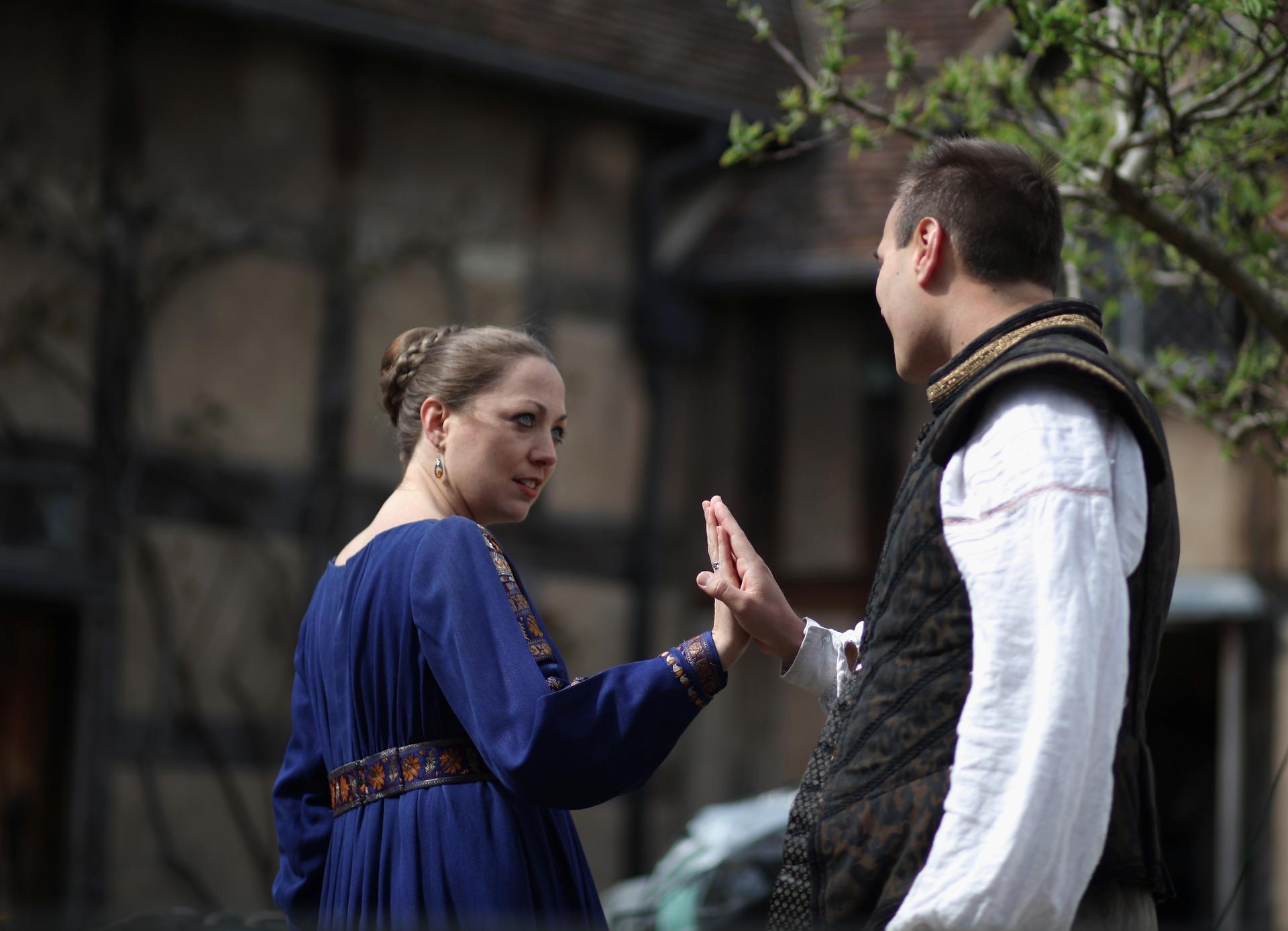Iraq-style “Romeo and Juliet” premieres in Europe
Actors plays scenes from Shakespeare to tourists in the garden of William Shakespeare’s birthplace on April 10, 2012 in Stratford-Upon-Avon, England. With only a few months to go until the opening ceremony of the London 2012 Olympic Games, Britain’s tourist industry is hoping to benefit from the influx of athletes, officials and visitors.
An Iraqi adaption of Shakespeare's famous love story opens at the playwright's home town of Stratford-upon-Avon tonight, marking the European premiere of "Romeo and Juliet in Baghdad," according to the World Shakespeare Festival.
The Arabic-language setting of the beloved 16th-century play does stray somewhat from the original, infusing the plot with Shiite-Sunni tensions, references to landmark militant attacks in Iraq, and even transforming Paris, Juliet's snubbed suitor, into a suicide bomber, according to Agence-France Press.
Romeo may be Shiite and Juliet Sunni, but don't get the wrong idea — Paris is not a member of Al Qaeda, director Monadhil Daood told AFP.
This is a play about love, after all.
The Iraqi cast appears to agree. Young Kurdish actress Sarwa Rasool (Juliet) told AFP that "it has happened many times that two people from those two sects love each other and they cannot continue" their relationship in Iraq, saying this is a problem for Sunnis and Shiites as much as for Arabs and Kurds.
Daood, a member of Baghdad’s Iraqi Theatre Company, told AFP he wants the play to return to his country after its European extravaganza. It was was first performed to what AFP said was a "packed house" in Baghdad's National Theater on April 16. The play will be performed in London from June 28 to 30.
"Shakespeare is well-read here," The Telegraph's Richard Spencer recently wrote from Baghdad, adding that "when one looks beyond Baghdad’s recent history and to the traditions of an intellectual and cultural past that ended relatively recently, [the playwright is] more revered even than in other countries with a theatrical history."
The appreciation comes of a long history of literary activity in Iraq, a nation that played in leading role in the development of art and culture throughout the Arab world. Literary salons first appeared in the ninth-century Iraq and were soon "flourishing in Baghdad and other urban centers," wrote Samir Ali in "Arabic Literary Salons in the Islamic Middle Ages."
More from GlobalPost: Russia oil giant LUKOIL to start drilling in Iraq
"Romeo and Juliet in Baghdad" also captures a resuscitating artistic life in Iraq following the December withdrawal of US troops from the war-torn country. The New York Times in June found that applications to Baghdad’s art schools have gone up some 25% since 2008.
When Spencer asked Ahmed Salah Moneka (Romeo) "a rather corny question about what the part means to him," Moneka responded by saying, “I love people. If I were in love, I would love from my heart till it wore me out. In fact, I am already tired because I love my part so much," according to The Telegraph.
The theater project was funded by Iraq's culture ministry and commissioned by the 2012 World Shakespeare Festival as part of the arts program for London's hosting of the summer Olympic games.
But director Daood can't wait to take it back home. "I need to help my people," the 52-year-old director told AFP, describing his play as an opportunity for Iraqis to reflect on themselves and the future of their young nation, inviting them to "[c]ome and see yourself, because I am the mirror."
Every day, reporters and producers at The World are hard at work bringing you human-centered news from across the globe. But we can’t do it without you. We need your support to ensure we can continue this work for another year.
Make a gift today, and you’ll help us unlock a matching gift of $67,000!
